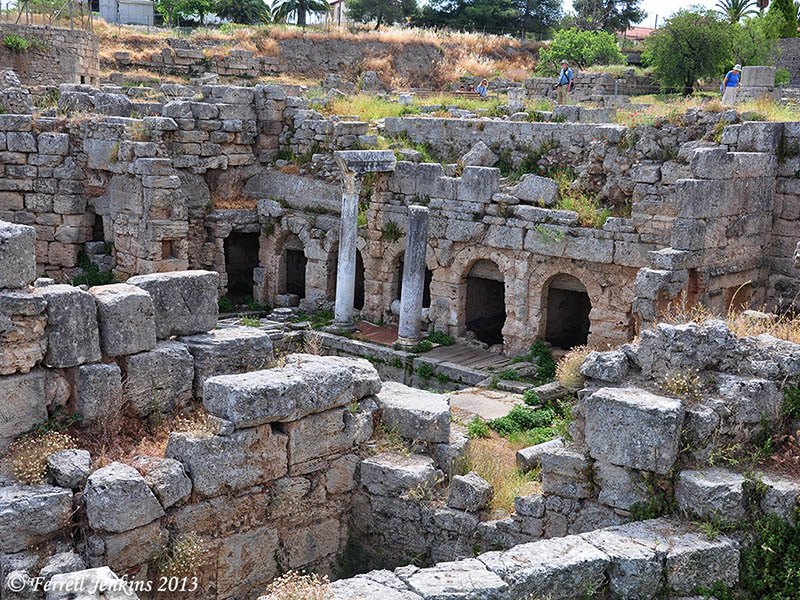The Fountain of Peirene, well-known in the ancient city of Corinth, is a place steeped in both history and myth. Now, you might be wonderin’ what makes this fountain so special. Well, let me tell ya, it’s not just any old water source, no sir. This fountain’s got stories that go way back, with roots deep in Greek mythology and its very own place in the city’s daily life. Let me walk you through it.
First off, Peirene wasn’t always the grand fountain we know about today. Nope. Back in the day, this here fountain started out as just a natural spring, a simple water source for the folks livin’ around Corinth. It was just a little grotto, mind you. But over time, as the city grew and the Romans showed up, things changed. By the time the Romans got their hands on it, Peirene was lookin’ mighty fine, with a big ol’ grand façade and a pool-sized basin that became the heart of the city’s water supply.

Now, don’t go thinkin’ this was just any ol’ waterhole. According to the legends, this fountain was sacred. You see, in the world of the ancient Greeks, the gods and mythical creatures were all over the place, and the Fountain of Peirene wasn’t left out. It was believed to be the favorite watering spot of the famous winged horse, Pegasus. Yep, the very same Pegasus that you’ve probably heard of from all those old stories. It’s said that he struck the ground with his hoof, and lo and behold, the fountain sprang up right there in Corinth. Ain’t that somethin’?
But that’s not all. According to the folks who knew about the Muses, this fountain wasn’t just a place to drink water. Oh no, it was also a spot where poets and writers would come to get their inspiration. You see, the water from the Fountain of Peirene was thought to have magical properties. Drinkin’ from it was supposed to bring you the gift of creativity. So, in a way, this fountain wasn’t just quenchin’ thirst – it was also quenchin’ the creative thirst of poets from all over the land. I reckon if I had a sip, I’d come up with a few stories myself!
The Romans, bein’ the grand builders they were, made sure to improve upon the fountain. They added some nice touches, includin’ a court, and decorated the area with fancy sculptures and frescoes. But even after the Romans came and went, the Fountain of Peirene remained one of the most famous spots in the city. For centuries, it served as a vital water source for the people of Corinth, right there at the heart of the city. It was an important part of everyday life, and it was still highly regarded long after the Romans left.
Even though the fountain saw a bit of neglect after the fall of Corinth in 146 B.C., it was later rediscovered and excavated in the 2nd century A.D. by a fella named Rufus B. Richardson. His work brought the fountain back to life in the eyes of the world. Today, you can still see remnants of the grandeur that was once the Fountain of Peirene. Some of the Roman frescoes and sculptures that were once part of the fountain’s adornments can still be seen in museums. Pretty remarkable for something that started as a humble spring, huh?
To this day, the Fountain of Peirene is considered one of the most iconic monuments of ancient Corinth. It’s a reminder of the ingenuity of the ancient world, where water, mythology, and everyday life were all tangled together. And let’s not forget the inspiration it gave to generations of poets and writers. Maybe they were onto something with that “magical water” idea – who knows what we might be able to create if we took a little sip from that fountain ourselves!
So, the next time you think of fountains, don’t just picture some ol’ stone basin with water in it. Think of the Fountain of Peirene. A place where water wasn’t just for drinkin’ – it was for creatin’, inspirin’, and connectin’ with the mythical world that once surrounded it. There’s a lot more to a fountain than meets the eye, especially one with a legend as rich as this one.

Tags:[Fountain of Peirene, Ancient Corinth, Greek mythology, Pegasus, Roman architecture, Corinth water sources, Muses, inspiration, historical monuments, ancient Greek fountains]